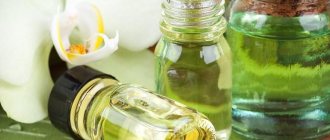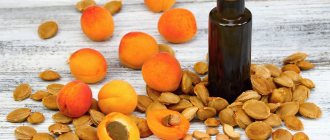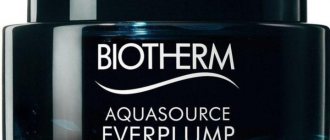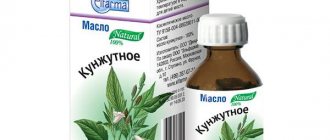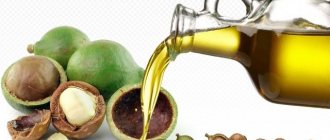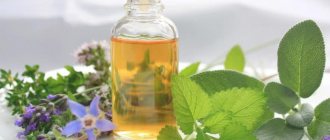Olive oil is a natural plant product obtained from the fruit of the olive tree, which grows in the north-eastern Mediterranean. Olive elixir or liquid gold, by the way, has the status of a national product in Italy, Spain and Greece. In Russia in the 19th century, premium olive oil was given the name “Provencal.” Color: greenish-yellow, taste: slightly bitter.
It is produced from olives of varying degrees of maturity depending on the time of year in which the harvest was harvested: unripe, green and black. And due to this, the taste and smell of oil from different varieties will vary and be used for different purposes.
Olive oil has found its use in cooking - it is the main ingredient of the Mediterranean diet, in soap making, in cosmetology and even for church ceremonies.
Olive oil for the face is widely used in homemade masks, as well as ready-made cosmetics (creams, ointments, emulsions). It is suitable for any type of facial skin. That is why it is often used as the main component in the preparation of mixtures for facial and body skin care at home.
Benefits of olive oil for the face
Olive oil contains antioxidants
Olive oil acts as an antioxidant, which is a substance that prevents oxidation. Oxidation is a process that can produce free radicals, which are chemicals that can potentially damage cells and may contribute to the development of cancer.
When applied to the skin, antioxidants can prevent premature aging. Additionally, some studies show that applying olive oil to the skin after sun exposure may fight cancer cells.
In the study, researchers applied the oil to the skin of mice that had been exposed to potentially harmful ultraviolet (UV) rays. Tumor growth was significantly lower in mice that had olive oil on their skin compared to those that did not. Consider the best brands of olive oil for the face.
Scientists need to do more research in this area to understand the effects of olive oil's antioxidant properties on human skin.
Olive oil contains vitamins
Olive oil contains fat-soluble vitamins A, D, E and K. Some of these vitamins may be beneficial for the skin.
For example, people have used vitamin E oil topically throughout history to treat a variety of skin conditions, including psoriasis and eczema.
Olive oil has an antibacterial effect
Olive oil has been shown to have antibacterial properties. However, there is very little research on the ability of olive oil to control bacteria on the skin.
One small study looked at the effects of using olive oil and coconut oil on Staphylococcus aureus bacteria on the skin. The results showed that both oils exhibited antibacterial properties, but virgin coconut oil was more effective at eliminating bacteria.
However, olive oil can sometimes be used to treat bacterial skin infections. Read about the benefits of coconut oil for the face.
Olive oil has a moisturizing effect
Olive oil is a popular natural moisturizer that is often used to soften both skin and hair. However, there is very little research on its effectiveness.
Sophia Loren's elixir and Cleopatra's favorite remedy
The medicinal properties of the olive product were described by the “father of medicine,” the ancient Greek physician Hippocrates. And soap and cream based on this were used by the great Egyptian queen Cleopatra.
The modern Italian diva Sophia Loren in her interviews assures that she regularly uses the “golden” component in cosmetics, care and nutrition. And the result, as they say, is obvious. The artist is 81 years old, and many thirty-year-olds envy her skin.
Olive liquid is not particularly popular in Slavic culinary traditions. But recently, nutritionists have been recommending using it instead of the sunflower product we are used to.
Studies show that olive can prevent the appearance of malignant tumors - it reduces the risk of cancer by almost 50%. It is recommended for heart patients, hypertension and diabetics. Used to normalize the functioning of the digestive organs and kidneys. Olive “juice” is rubbed for back pain.
Which olive oil is best for the face?
It is very important to use high quality olive oil. Poor quality oils may contain additives or chemicals that can irritate or damage the skin.
People should try a reputable brand of oil and look for the certification badge.
The study found that 73 percent of the five best-selling imported brands of extra virgin olive oil in Russia do not meet the required standards for olive oil.
Lastly, be sure to choose pure olive oil or extra virgin olive oil instead of blends.
Let's sum it up
So, we have already told you the main beauty secrets, which consist in using various masks with such widespread products as gifts from bees and olive oil. Most likely, while reading the article, you have already chosen the option that suits you. Remember that the composition must be selected not based on the components that are exactly in your refrigerator, but on the individual characteristics of the skin. This important rule must be strictly adhered to. Also remember the recommendations that we gave you at the beginning of the article. During the procedure, use only fresh “raw materials”, and an excellent result will not take long to arrive.
Similar materials
Effective lifting mask at home - The best beauty recipes
March 27, 2017
Magic mask for hair volume at home - Recipes
May 26, 2017
Masks for dry skin at home - Recipes proven over the years
May 7, 2018
Effective alginate face mask - Reviews and application
March 14, 2018
Homemade banana face mask - Miracle recipes for weekly care
June 22, 2017
Using olive oil for wrinkles
Olive oil has some benefits for the skin. According to the International Olive Council, olive oil contains many vitamins, including A, D and K, as well as vitamin E.
Evidence suggests that it may cause adverse reactions in some people, so people with sensitive skin should do an allergy test.
To do this, rub a few drops of oil on your hand and watch the reaction. If it does not appear within 48 hours, it is probably safe to use.
Remember to only use high quality, certified olive oil. Consider using castor oil on your face.
How is olive oil produced?
A high-quality product made from these raw materials cannot be cheap. They say that one liter of it costs 1 thousand and more. Why such a high cost? But the thing is that obtaining it is a rather labor-intensive and long process.
If you are interested, I suggest you find out how things are. First, olive trees are grown in plantations in special soil that does not contain chemicals. When their fruits are fully ripe, harvesting begins. It can be manual or using technology. It all depends on the size of the plantations.
After this, the olives are taken for grinding. This must be done quickly, because in order to get a fresh product, the fruits need to be processed on the same day. But before that, they still need to be ventilated, so they are first placed in the ventilation zone.
Then they are sorted according to quality, and then they are washed. And after all this they are placed in stone millstones, which turn them into pulp. What happens next? At the final stage, the fruits are cold pressed.
It can be performed in 2 methods:
- Traditional;
- Modern.
In the first case, the pulp is placed in special tiered containers and then subjected to compression. The oil is separated from the water and a high-quality first-press product is obtained. In the second case, it is produced using a centrifuge.
After the oil has settled, it is assigned a quality category. A low-quality product is subjected to refining in order to remove all harmful impurities. But unrefined extract is considered more valuable.
Proper use of olive oil for the face
Olive oil is an ingredient in many cosmetics, including body washes, soaps and lotions. Other ways to use olive oil on your skin include:
Olive oil moisturizer and after sun care
Some people use olive oil as a moisturizing lotion, applying it directly to the skin before blotting off the excess oil. Additionally, the oil can be applied to damp skin to prevent an oily feeling.
Based on studies of its antioxidant effects in mice, olive oil may be particularly beneficial when applied after sun exposure.
Olive oil as a facial exfoliator
To exfoliate the face and body, as well as treat areas of dry or scaly skin, a person can mix olive oil and sea salt to make a scrub.
People should use fine-grain salt on the face and other sensitive areas, and coarser grains on the rest of the body.
Olive oil as an eye makeup remover
Olive oil breaks down any waterproof substances in your eye makeup, allowing them to come off quickly.
To remove eye makeup, simply add a few drops of olive oil to a cotton ball and gently wipe the area around your eyes.
Olive oil face mask
People with dry skin may see benefits from using an olive oil face mask. Olive oil mixed with ingredients such as egg white, honey or ground oats can soften and moisturize the face. Consider the best oils for wrinkles.
Using Olive Oil for Facial Acne
If you are prone to acne, use olive oil soap. It can help reduce your acne by killing the bacteria that causes acne. Olive oil can also moisturize your skin.
Treatment of wrinkles with olive oil
Thanks to its antioxidant content, olive oil can reduce skin aging and wrinkles. The oil can be applied around the eye area at night or after sun exposure.
For scars
The vitamins and other antioxidants in olive oil help skin cells regenerate.
Simply rub undiluted oil into scars or mix it with a squeeze of lemon juice to treat areas of hyperpigmentation where the skin has darkened due to scarring.
Olive oil can also be used to prevent or treat stretch marks, although studies on its effectiveness have shown mixed results.
Benefits for facial skin
The ancient Greeks called this oil “Liquid Gold”. The greenish-yellow liquid was used not only for food, but also as a skin care product. What makes olive oil so valuable? And it’s all about the composition, because it’s rich and varied.
Look what's in it:
- monounsaturated fatty acids (high oleic content);
- vitamins A and E;
- flavonoids;
- polyphenolic compounds;
- triglycerides;
- squalene;
- minerals (phosphorus, iron, calcium, copper);
- chlorophyll;
- carotenoids;
- pheophytin.
All these, excuse the word, “benefits” bring many benefits to the epidermis. Olive extract has:
- nutritious;
- moisturizing;
- protective;
- softening;
- rejuvenating;
- tonic;
- regenerating;
- antioxidant;
- antimicrobial functions.
It can be used for all skin types, but it is of particular value for dry, flaky, mature and aging skin, because it can not only prevent wrinkles, but also fight existing ones. But it can also be used for problematic skin, because it helps clear blackheads and whiteheads.
This product is added not only to homemade homemade masks, but global cosmetic concerns do not shy away from using it, producing creams, massage products, and aroma compositions based on it.
Olive extract is ideal for skin that is constantly exposed to external environmental influences: winds, frost, sun, temperature changes. Therefore, it can be used effectively in winter, and in summer it will help soothe the epidermis after sunbathing, and it also promotes an even tan.
Can you use olive oil instead of face cream?
Olive oil is often used as an ingredient in face washes. There are cosmetics that have a base of olive oil. It can also be found in soaps, face and body lotions.
You can use olive oil as a moisturizer without any additional ingredients by applying it directly to your skin. From there, you can wipe off any excess oil with a towel or cloth. It can be especially beneficial to use olive oil as a moisturizer after you have been exposed to the sun or suffered a sunburn. Learn about using different types of essential oils for your face.
Secrets of correct application of masks
It happens that the mask has no effect. Whether it is an expensive advertised product, or a natural one, prepared with your own hands. This occurs due to improper use and application. The rules for applying masks are simple, and following them will help achieve the desired result.
- The product should be applied to clean skin: an infused herbal decoction, purified water, milk, tonic or lotion.
- The thyroid gland area should not be smeared with a mask.
- When applying the mass to the face, you should bypass the areas of the lips and eyelids, or treat these areas with cream before using the mask.
- It is not recommended to keep the product for longer than 20 minutes.
- The pulp should be washed off with warm, clean water.
- After rinsing, the face should be moisturized with a cream of the appropriate type for the skin.
- It is recommended to remain calm during the procedure. The best thing is to relax and lie down with your eyes closed.
Today in stores you can find a million different face masks that are ready for use. But many are of the opinion that the benefits of “homemade” remedies are doubly felt. A homemade honey and olive oil face mask is much more affordable. In addition, it does not contain questionable dyes, flavors and harmful preservatives. Undoubtedly, traditional medicine is always valued. The main thing is to understand how to use them correctly and for what type of skin to choose. You can read reviews on this topic or write your opinion on the forum.
Moisturizing face masks with olive oil
Mask with olive oil and honey
It is antibacterial and anti-inflammatory, which helps prevent acne. Raw honey is also a humectant that increases the water content of your skin and reduces dryness, plumping the skin and leaving it glowing.
Mask with olive oil and orange
Fresh orange peel contains vitamin C, a key ingredient that protects skin from damage from UV rays and pollution. Vitamin C helps build collagen—the skin's support system—and fights free radicals, improving your skin's texture and reducing wrinkles.
Mask with olive oil and yolk
Egg yolk helps retain moisture in the skin, making it softer and more elastic. It hydrates and nourishes dull skin, making egg yolks a good choice if you have dry skin. If your skin is oily, replace the egg white with egg yolk. Egg whites help tighten skin, shrink pores, and reduce fine lines and wrinkles. The protein and collagen found in eggs help improve skin elasticity and strength.
Mask with olive oil and vitamin E
Vitamin E oil is an antioxidant that is easily absorbed into the skin and helps reduce damage from UV rays. When applied topically, it nourishes dry skin and neutralizes free radicals that contribute to the formation of wrinkles and brown spots.
Composition and benefits
The unusual composition of olive oil helps maintain skin firmness and elasticity, moisturizes and nourishes it.
- Thanks to the vitamin E content, the regeneration of epidermal cells is triggered, and partial facial rejuvenation occurs.
- Monounsaturated fats found in olive oil soften and relieve irritation.
- Contains sufficient amounts of vitamins B, K, D, which keep the skin in excellent condition.
- Vitamin A ensures the preservation of softness and has a trophic effect.
In addition, the composition contains a whole range of acids:
- Oleic (stimulates collagen production, tightens skin);
- Linoleic (regulate water balance);
- Linolenic (relieves inflammation);
- Stearic (promotes the healing of minor damage to the skin);
- Palmitic (activates elastin synthesis).
Recipe for the best face mask with olive oil, according to reviews
Here's what you'll need
- 1 tbsp. l. olive oil
- 1 tsp. raw honey
- 1/2 tsp. fresh grated orange zest
- 1 capsule vitamin E oil
- 1 egg yolk (for dry skin) or 1 egg white (for oily skin)
- Makeup brush
Recipe and application
- In a small bowl, combine olive oil, honey and orange zest.
- Break open a vitamin E oil capsule and add the contents to the olive oil mixture.
- Add egg yolk or egg white to olive oil mixture; whisk until completely combined.
- Using a soft makeup brush, apply a generous layer of olive oil mask to face and neck, avoiding the eye and mouth areas. Leave on for 15 minutes.
- Wash off the mask with warm water; rinse with cool water. Apply your favorite moisturizer to your face and neck.
- Store remaining mask in an airtight container in the refrigerator for up to 4 days.
Tip: Apply an olive oil mask after getting out of the shower, while your pores are open and your skin can make the most of the extra hydration.
Olive oil can spoil during transportation if it is exposed to excessive heat, light, or oxygen. The quality of olive oil can be affected if damaged or overripe olives are used in its production or if the oil is not stored correctly. When using olive oil on your face, be sure to test your skin's reaction to olive oil on a small portion of your skin.
How to do it right: basics of application
- You cannot keep an uncorked bottle at home for more than six months, or leave the jar open for a long time.
- The bottle should be kept in a dark place, avoiding exceeding the temperature at which it can be stored, which is usually indicated on the packaging.
- Do not mix olive oil with ready-made cosmetics. This will definitely cause harm, since some components of finished creams and face cosmetics are not compatible with the substances that make up olive oil.
- Everything is good in moderation. With repeated long-term use, an excess of fatty acids can be harmful and cause acne and comedones.
- You should not keep the mask on your face for longer than 40 minutes.
The best facial products with olive oil
Ayoume Olive Herb Cleansing Oil
To delicately cleanse sensitive facial skin, you need to use facial oil with olive extract Olive Herb Cleansing Oil from the Korean brand Ayoume. This unique product perfectly cleanses the dermis of impurities, drawing out all the toxins that have accumulated during the day. Olive extract contained in the oil has a beneficial effect on the skin. It has bactericidal properties, heals small wounds and, of course, nourishes the epidermal cells from the inside. Also an additional component is calendula extract, which regulates the production of subcutaneous sebum. Ayoume Olive Herb Cleansing Oil is suitable for all skin types (especially sensitive!).
Hydrophilic olive oil Deoproce
Hydrophilic oil for sensitive skin Deoproce Cleansing Oil Total Energy is a cleanser for facial skin based on vegetable oils from Deoproce.
The oil gently and delicately removes makeup of any durability: BB cream, CC cream, foundation, waterproof decorative cosmetics for eyes and lips (mascara, eyeliner, lipstick, tint, etc.), and also deeply cleanses the skin and pores, removes “blackheads”, impurities and excess sebum.
Hydrophilic olive oil Elizavecca Natural 90% Olive Cleansing Oil
Hydrophilic oil is suitable even for removing super-resistant makeup, and its natural, hypoallergenic composition will delight those with dry and sensitive skin.
Elizavecca Cleansing Oil consists of 90% olive oil grown without the use of synthetic fertilizers or harmful chemicals. The oil has undergone minimal processing, preserving the maximum of nutrients in it.
The composition also contains jojoba, avocado, tea tree, sunflower and argan oils.
The effect of “yellow gold” for the face
In addition to the fact that olive oil nourishes the skin, gives elasticity and rejuvenates it, the oil protects the skin from the harmful effects of sunlight. Active collagen production, activated by the action of olive oil, guarantees the smoothing of fine wrinkles and the regeneration of epidermal cells.
Anti-inflammatory properties will help with rashes and acne. With regular use of masks made from olive oil, the skin becomes more hydrated, the tone is evened out, its color becomes healthy, and the texture is velvety.
Precautionary measures
When used correctly, olive oil will not harm the skin. The only contraindication is individual intolerance to the product, so be sure to perform the test to avoid itching, redness and peeling of the skin.
Observe the following precautions:
- Do not use regularly on oily skin. Start by treating a small area to make sure the oil doesn't clog pores or cause breakouts.
- Apply the extract only to damp skin, for example after a shower.
- Do not use oil more than 1-2 times a week.
- Don't leave it on overnight. Remove any residue with a napkin and wash.
- The course should not exceed 2–3 weeks.
Who is it suitable for?
When answering the question about the appropriateness of using olive oil for cosmetic purposes, it is easier to say who it is not suitable for than to list all the cases when this oil is indicated for use. You can start making applications from a very young age.
The oil helps to cope with the characteristics of problematic skin, it eliminates excessive dryness, is useful for aging and aging skin, removes dark circles under the eyes and copes with vascular mesh.
Due to the presence of squalene, the use of the product for cosmetic purposes is indicated for those who suffer from eczema, psoriasis and neurodermatitis. The most pronounced effect is found in cases of dryness and flaking.
User reviews
In home cosmetology, olive oil competes with other natural extracts: from grape or peach seeds, almonds, etc. For this reason, some women are perplexed whether it is worth using a food product for cosmetic purposes, if there are so many analogues designed specifically for maintaining beauty and skin health.
However, fans of olive oil have their own compelling arguments. This is, for example, evidenced by this review.
This girl advises removing makeup with olive oil.
The author of the following review uses the food product exclusively to improve skin condition.
There are also opposing opinions. For example, olive oil didn’t quite work for this girl.
The user who left the following review does not recommend using olive extract because it dries out the skin.
Despite the conflicting opinions, olive oil is universal. It is suitable for the skin of the face and body, hair, replaces lip balm, hand cream and cuticle product, heals eyebrows, eyelashes, and provides the body with vitamins and fatty acids. However, to do this you need to choose the right quality product and not make mistakes during its use.
Give your skin a break from this nourishing product and do not replace your regular skincare products with it. Everything is good in moderation - this thesis is fully applicable to olive oil.
Contraindications
Olive oil for the face is a source of many beneficial substances, but this product has some contraindications for using masks at home.
The most important ones include:
- cholelithiasis. People with this type of disease can aggravate it, because olive oil has an increased choleretic effect;
- this oil has a high concentration of fats, so people suffering from increased production of sebaceous glands are better off not using this product often;
- It has been proven that when heated, this oil can release toxic harmful substances. Therefore, heating olive oil is not recommended;
- using oil with other components can cause an allergic reaction;
- individual intolerance.
